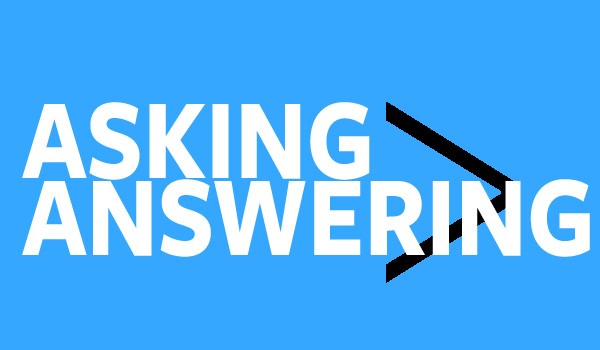In the American school system, you’re rewarded for being the best question answerer.
For memorizing multiplication charts, the year the Lusitania sunk, how to spell onomatopoeia. Those aren’t bad things to know, they just aren’t the most helpful types of things to keep in the deep recesses of your memory.
A quick calculation, Google search or dictionary reference–all of which now fit inside our pockets with smartphones–can give us the answers we’re looking for.
Unfortunately, we’re rarely rewarded for being the best question askers–a far less common skill and one that will serve you for a lifetime.
Anyone with an internet connection can find the right answer. Few people can asking well-crafted questions that drive conversations, create genuine connections and get to the root of problems. We haven’t been trained to be good question askers, and we as a society need to fix that. No one likes a know-it-all. Everyone loves a listener. I think question asking is a key to humility as well, because it shows you care what others think.
Question asking is the easiest-to-develop yet most-under-valued skill in communication. Asking great questions is the key to understanding people, gaining their trust, developing deep relationships and creating real friendships. It’s an invaluable business skill as well, especially in sales.
I’m not a question asking expert, but I want to be. So, I’ve started observing how great question askers do what they do. I’m working on this process of asking better questions, and here are a few things I’ve notice that the best question askers do.
How to Become a Better Question Asker
1. Have some go-to questions.
Keep a few questions tucked away to get conversations going. Some of my favorites are:
- What are you most passionate about?
- What’s the best book or article you’ve read lately?
- What do you most enjoy talking about?
Those are low-hanging fruit that easily get people talking about things they naturally enjoy.
2. Listen carefully.
Here’s the most important tip. Don’t think of your next question before the person you’re talking with is finished speaking. Soak in what they are saying. Listen to every word. Embrace the potential 2-second awkward silence after they finish their response. The more carefully you listen, the more you’ll have to ask further about.
3. Ask follow ups.
I’m really good at hearing something and just moving on, assuming I know why someone thinks that way. I need to get better at asking follow up questions like:
- Why do you think that is?
- What’s the connection there?
- Can you tell me more about that?
Super simple, but undoubtedly leading to a deeper discovery.
4. Curate curiosity.
Basically, care. Care about what someone is talking about. Take a genuine interest in them. Wonder alongside them. Try to understand why they think the way they do.
5. Keep it open-ended.
Don’t ask yes or no questions. They are normally conversation killers, especially among those who aren’t natural conversation carriers. Instead of asking a yes or no question (or a close-ended question that would lead to a one-word answer) ask questions that start with why or how instead of what or who.
